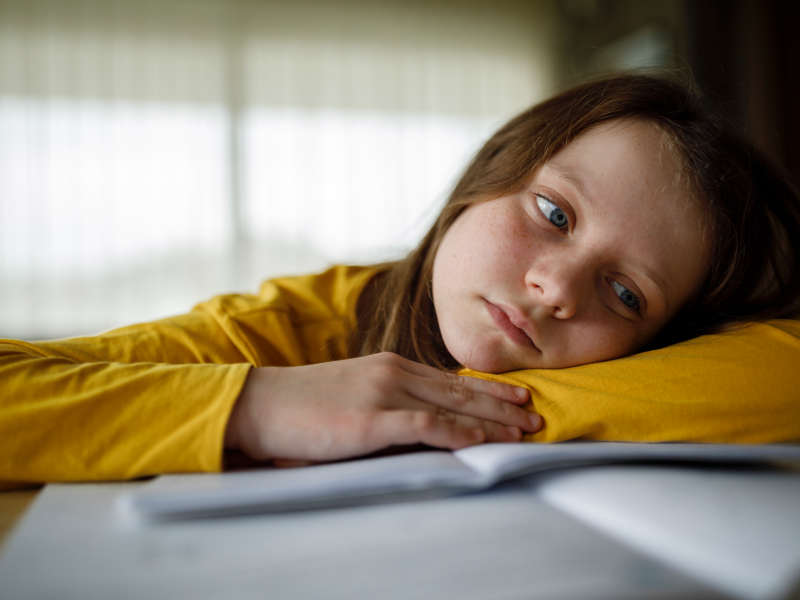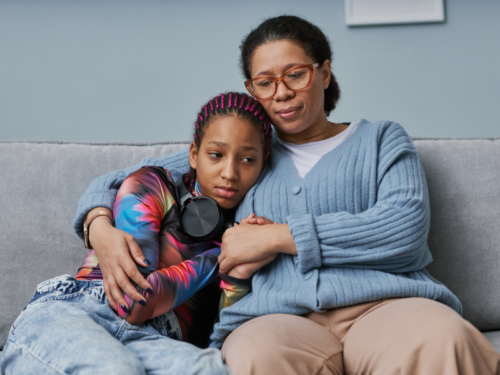
Table of Contents
What is a Co-Occurring Disorder?
Written By: Charlie Health Editorial Team

Clinically Reviewed By: Dr. Don Gasparini
April 27, 2023
5 min.
A co-occuring disorder is when a person experiences a mental health disorder and a substance use disorder.
Learn more about our Clinical Review Process
Table of Contents
Substance use disorders often exist in tandem with mental health disorders. This combination is known as a co-occurring disorder and is relatively common for young people. Here’s what you need to know about what a co-occurring disorder is, its symptoms, and treatment.
What it means to have a co-occurring disorder
A co-occurring disorder is when a person experiences any mental health condition at the same time as a substance use disorder. This can also be referred to as a dual diagnosis.
According to the Substance Abuse and Mental Health Services Administration (SAMHSA), about nine million adults have a co-occurring disorder across the United States. Between 60% to 75% of young people with substance use disorders have a co-occurring disorder. So, why do mental illness and substance use disorders occur together? For starters, research shows a link between severe depression and a higher likelihood of experiencing substance use disorder. Young people who experienced a major depressive episode were more than twice as likely to start consuming alcohol or using illicit drugs. Other common co-occurring disorders include post-traumatic stress disorder, anxiety disorders, conduct disorder, attention-deficit/hyperactivity disorder, and oppositional defiant disorder.
Join the Charlie Health Library
Get mental health updates, research, insights, and resources directly to your inbox.
You can unsubscribe anytime.
Substance use by young people
Substances include alcohol, cannabis, opioids, and stimulants, among other drugs. From 2018 to 2019, 4.1% of adolescents had a substance use disorder, 3.2% had an illicit drug disorder, and 1.6% had an alcohol use disorder, the Centers for Disease Control and Prevention (CDC) reports.
Research has found drug use is on the rise among young people. According to the National Center for Drug Abuse Statistics, the number of eighth graders using drugs increased by 61% from 2016 to 2020, with 21.3% having used illicit drugs at least once in their lifetime. For 12th graders, it expands to almost half of the students, at 46.6%.
Drinking alcohol is the most common substance consumed by young people, with 7.1 million people ages 12-20 reporting having an alcoholic drink in the last month. For 60.2% of people, this included at least one instance of binge drinking. Drug use varied significantly by type, with 43.7% of 12th graders reporting having tried marijuana and 5.3% misusing an opioid other than heroin at least once.
Symptoms of substance use disorder in young people can include:
- Misuse of drugs
- Altered physical appearance
- Shifts in personality
- Mood swings
- Changes in appetite
Mental health disorders in young people
Each year, one in six people ages six to 17 experience a mental health disorder, reports the National Alliance on Mental Illness. Chronic mental health conditions manifest by the age of 14 in 50% of people. So, what is the most common mental illness in young adults? From 2016 to 2019, 9.4% of young people had once been diagnosed with anxiety. Another 4.4% were diagnosed with depression.
A co-occurring disorder in relation to mental health disorders is when a person experiences two or more mental health conditions simultaneously. However, this is commonly referred to as comorbidity. It differs from the co-occurring disorder discussed in that it includes any disorders — regardless if one of them is substance use disorder — that happen at the same time. Anxiety and depression are often comorbidities, with 73.8% of young people with depression also being diagnosed with anxiety. Conversely, 32.3% of people with anxiety also had depression.
Symptoms of mental health conditions vary tremendously based on the disorder or disorders a person is living with at the time. Also, two different people have the same mental illness but with varying degrees of severity. Subtle signs of anxiety and depression can include:
Anxiety
- Restlessness
- Fatigue
- Feelings of being overwhelmed
- Muscle aches
Depression
- Overall disinterest in activities one used to enjoy
- Disrupted sleep
- Intrusive thoughts about self-harm or death
- Substance use
A big part of understanding co-occurring disorders is exploring how depression and substance use are related. It’s critical to look at the many forms depression can take, such as:
- Seasonal affective disorder
- Bipolar disorder
- Major depressive disorder
- Postpartum depression

Why do mental health disorders and substance use disorders co-occur?
Living with a mental health or substance use disorder can increase a person’s likelihood of experiencing the other. According to the National Institute of Mental Health (NIMH), people with a mental health disorder might “self-medicate” with substances.
Though this can provide temporary relief, symptoms can eventually worsen. The brain can also change to intensify the pleasurable feelings derived from taking substances, leading to further use. At the same time, substance use can potentially alter the brain to increase a person’s risk of developing a mental health disorder.
Issues around accessing effective care for mental health or substance use can also leave space for one to lead to the other.
The 2022 Care Survey from the National Council for Mental Wellbeing found that 43% of adults were unable to access necessary mental health or substance use care. Barriers to care included cost issues — such as no insurance and a lack of accessible locations. The survey found that 37% of participants who couldn’t receive substance use care reported a decline in their mental health. On top of that, about one-third of people were unable to access care for substance use. At the same time, one-fifth of people who were unable to access care for their mental health were found to have increased drug or alcohol use as a direct result.
It’s critical to note that a co-occurring disorder doesn’t necessarily mean one condition caused the other. Genetics, generational trauma, and environmental factors can increase a person’s risk of substance use disorder and mental health disorders.
Do you need more support with
your mental health?
Charlie Health can help.
Treatment for a co-occurring disorder
Co-occurring disorders can involve a vast array of conditions, and symptoms may vary tremendously from person to person. To this end, tailored support can go a long way toward managing a co-occurring disorder. At the same time, there are specific treatment options proven to be more effective for a person with a co-occurring disorder.
Therapy can benefit people with substance use and mental health disorders. Cognitive behavioral and dialectical behavior therapies can aid people in navigating these disorders. For young people, in particular, brief strategic family therapy, multidimensional family therapy, and multisystemic therapy can be of value.
Certain medications for treating substance use disorder can also improve mental health symptoms. However, a co-occurring disorder risk to keep in mind is medication interactions. According to SAMHSA, taking medications for substance use disorder with medications for anxiety can result in serious side effects. Always be open and honest with a medical professional about what other conditions you are living with and what medications you take. This can go a long way toward preventing any issues between your medications and your co-occurring issues in general.
Charlie Health’s Intensive Outpatient Program
Charlie Health offers a virtual intensive outpatient program that can support young people with life-threatening mental health disorders. So, how do you know if a virtual outpatient program is right for your teen? Virtual IOP is an option for someone who wants accessible care multiple times per week with a combination of groups, individual, and family therapy. Learn if Charlie Health is the right fit for yourself or for a loved one here.





